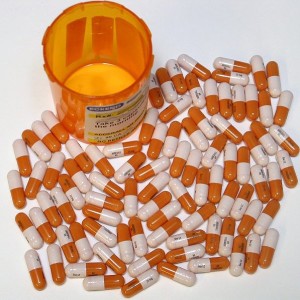
On any given day nearly one in four children in foster care is taking at least one psychotropic medication—more than four times the rate for all children. Nearly half of children living in residential treatment centers or group homes take psychotropic medications. Children in foster care are more likely to be prescribed multiple psychotropic medications at very high doses, although research shows higher doses can result in serious side effects.
Viewers of the ABC News program 20/20 may remember Ke’onte Cook from a few years ago, a 10-year-old who had already spent four years in foster care being treated with a dozen different medications for conditions including seizures, bipolar disorder, and ADHD. Ke’onte had never been diagnosed with the conditions some of the medications were meant to treat. Under his adoptive parents’ care he stopped taking all the medications and started relying on therapy, and with that new treatment plan he was transformed. Why are some children in foster care being overmedicated, and what steps do we need to take to do something about it?
Psychotropic medications act on the brain and central nervous system to cause changes in mood, behavior, or perception. They can be effective treatments for certain serious mental health conditions but there is a growing concern that too many children in foster care are overmedicated—in some cases as a form of behavior control.
Children who come into foster care often have been exposed to multiple traumatic events including the removal from their families, and may be at higher risk for mental health problems and emotional disorders. Too often multiple medications may be used without other kinds of effective treatments that might better address the underlying trauma children are experiencing. There’s evidence some children in foster care are subjected to powerful medications at very young ages and/or in combinations and amounts that are unsafe for children of any age. Many psychotropic medications are not approved for use in children at all.
Often children in foster care are prescribed drugs without any psychotherapy because resources aren’t available. They may not receive a proper initial diagnosis or any of the ongoing monitoring or extra services that should accompany the use of such powerful drugs—all essential considering the serious side effects from some that can include nightmares, hallucinations, suicidal thoughts, and even death.
The 20/20 special included the heartbreaking story of Gabriel Myers, a Florida seven-year-old who hung himself in his foster family’s bathroom. A state investigation concluded the use of psychotropic drugs was a contributing factor in his death. His foster father said the doctor who prescribed the many drugs Gabriel was taking—some so strong that even the pharmacy filling them raised red flags—would spend no more than five minutes with the little boy before sending him out the door with another prescription.
We must do better. Last year JooYeun Chang, Associate Commissioner of the Children’s Bureau in the Department of Health and Human Services’ Administration for Children, Youth, and Families (ACF), testified before Congress that despite important steps taken by the Administration and Congress to promote the monitoring and management of psychotropic medications and the development of trauma-informed practices, too many child welfare agencies lack the proper non-pharmacological treatments to address the mental health needs of children in foster care.
This year, for the second time, in President Obama’s budget proposal ACF and the Centers for Medicare and Medicaid Services (CMS) have jointly proposed a demonstration to promote trauma-informed psychosocial interventions to meet the complex needs of children who have experienced maltreatment and other trauma and to address the over-use of psychotropic medications for children in foster care.
The Administration seeks to reduce the over-reliance on drugs and increase the use of appropriate screening, assessment, and interventions. ACF is asking Congress for $250 million over five years to create the necessary infrastructure to do this, including creating a special workforce to recruit families who can care for children receiving alternative treatments; better training in trauma-informed practice for child welfare professionals; better coordination between child welfare and Medicaid agencies in case planning and case management; and better data collection and information sharing by child welfare agencies, Medicaid, and behavioral health services.
The budget request also includes an additional $500 million for CMS to provide incentives to states that demonstrate improvements to reduce inappropriate drug prescribing practices and overutilization of psychotropic medications, increase access to evidence-based and trauma-informed therapeutic interventions, promote child and adolescent well-being, and improve outcomes for children in the child welfare system. These common sense and necessary steps build on best practices already in place in some states.
Marian Wright Edelman is President of the Children’s Defense Fund whose Leave No Child Behind® mission is to ensure every child a Healthy Start, a Head Start, a Fair Start, a Safe Start and a Moral Start in life and successful passage to adulthood with the help of caring families and communities. For more information go to www.childrensdefense.org.




